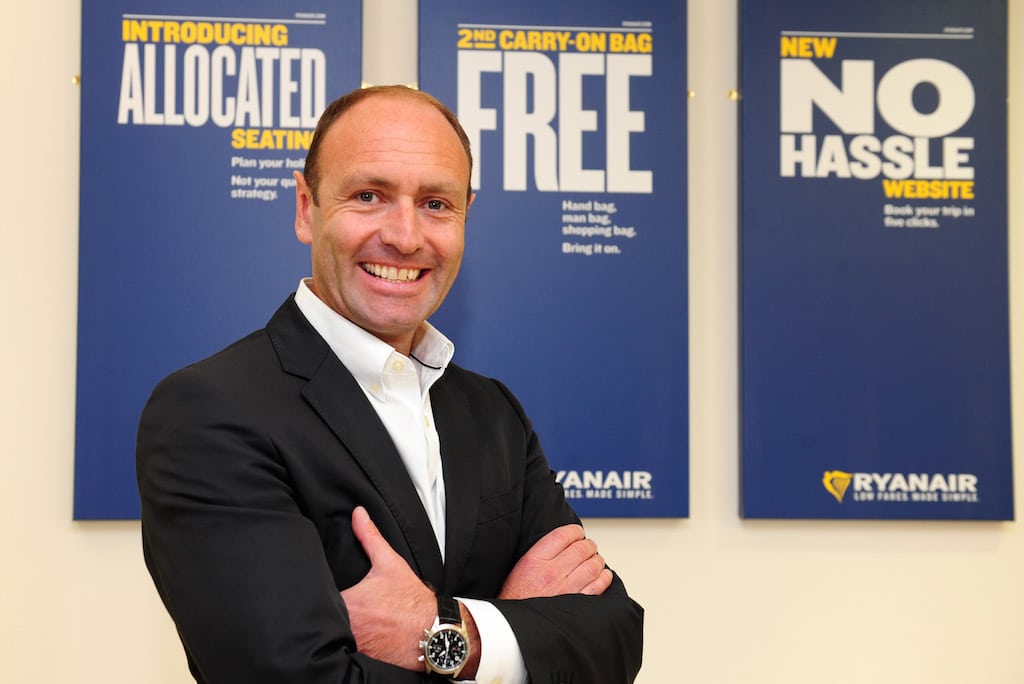Skift Forum Europe Preview: Ryanair CMO On Being More Customer-Friendly

Skift Take
Ryanair stumbled at the end of last year, when it cancelled some flights because of a pilot-scheduling issue. It not only annoyed passengers, but also exposed a long-standing rift between management and pilots, who complained of poor treatment and pay.
From an operational standpoint, flights are getting back to normal. The pilot rift is taking longer to fix, though the airline has prioritized labor relations, and some pilots have been rewarded with raises and better working conditions.
The pilot issue has overshadowed a story Ryanair prefers to tell — that it is a much more passenger-friendly and digitally-adept airline than three years ago. Long known for treating customers with disdain, Ryanair is finally responding to their needs, while continuing to offer cheap fares.
The architect of this strategy is chief marketing officer Kenny Jacobs, who joined Ryanair in 2014 after a stint at Moneysupermarket PLC. He had a mandate to create a gentler Ryanair without spending too much money.
Jacobs will speak later this month at the Skift Forum Europe in Berlin. Skift interviewed him last year to learn about why he was intrigued by Ryanair and how he changed the company's digital strategy.
Skift: You joined Ryanair in February 2014. What intrigued you about the airline?
Jacobs: It was probably the most opportunity rich environment I've ever seen. You need to be brave when you're going to take that on. But the chief executive and the board were really up for change. I would say four years later, we've probably changed more than any airline in the world and not just any low-cost airline. When I came in, we had a website that looked like a Hooters website. It didn't in any way let you sign in or save your details.
We didn't have an app. We didn't have any kind of customer program. We didn't send e-mails in a systematic way. We had basically one website for all markets and we had one fare class and that's just when you look at the digital.
Skift: What about the onboard product?
Jacobs: You'd look at the service side and would say there's lots of rough edges around the Ryanair product. I would have been someone living in Manchester flying to Dublin on a regular basis and my own equation was, if Aer Lingus or British Airways was less than 30 pounds sterling more expensive, I would have gone with them. If they were more than 30 pounds, I would say, 'Hmmm, can I really justify that on such a short flight?' But I think there was a hassle factor to flying with Ryanair and there was a hassle booking with Ryanair because you were like, 'I fly every week and I'm putting in the same credit card and the same passport details. I'm flying the same flight every week and you never want to know me and learn from me.'
What did the brand stand for when you arrived?
Jacobs: Ryanair was one of those unique brands because it just had the cheapest product. Now it had the cheapest product with a bit of rough-around-the-edges service and it didn't do digital. I just thought OK, if you keep the cheapest product, you can clearly be totally differentiated. The easy thing to do would have been to say, let's spend a lot of money, and fares can go up and we become like every other airline. That would have been the wrong strategy for Ryanair. The cheapest fares will always win, and over the last four years, fares have actually come down. We've become cheaper, and we've taken away the rough edges around the service and hence more people are flying. We've got more families flying with us and more business travelers flying with us.
How have you improved the online experience?
Jacobs: We've gone from no app and a Hooters-like website with no customer sign-in to the world's most visited airline website and Europe's most-used airline app.
If I go back four years ago and I look at the Southwest [Airlines] website, or if I look at the Lufthansa website, or the British Airways website and I look at them today, [they're almost the same.] OK, Southwest has put a different front end on the website and it's got that floaty search bar, but you go into the booking flow, it's still the same booking flow. It's still the exact same back end merchandising system.
We've kind of leapfrogged over everybody and have gone from being the guys way behind on digital to, absolutely at a minimum, we've caught up with everybody. And in some areas we're further ahead.




